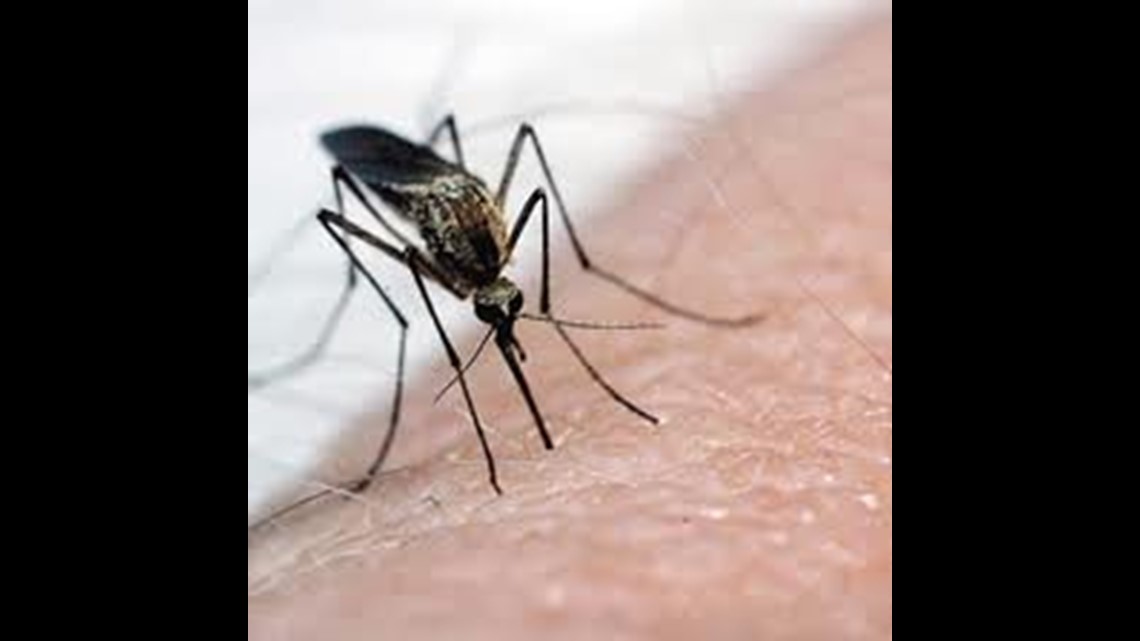

The PA Department of Environmental Protection’s West Nile Virus control program will conduct an ultra-low volume (ULV) mosquito application to reduce the populations of the Asian Tiger Mosquito in Hanover, York County.
The ULV treatment will occur south of W. Elm Ave and West of Baltimore St, Hanover Borough. Operations will take place Friday Morning, July 12, between the hours of 3:30 to 5 a.m., provided that weather and environmental conditions remain suitable for the operation.
The PA Department of Environmental Protection will perform the work using truck mounted spraying equipment with the business license BU5976 visible on the equipment. The product used will be Duet applied at a rate of .64 ounces per acre. Residential and recreational areas within this treatment area will be sprayed to control adult mosquitoes.
The product is designed to provide quick, effective control of adult mosquito populations. The application material has a very low toxicity profile to mammals and will have negligible impact to non-target insects and the environment.
This treatment is a result of high trap counts exceeding thresholds established for the Asian Tiger Mosquito population. Asian Tiger mosquitoes do not typically carry West Nile virus.
Weather conditions and other unexpected events could delay or cancel this spray operation. If conditions do not allow application on July 12, July 15will serve as the back-up spray date.
Individuals can take a number of precautionary measures around their homes to help eliminate mosquito-breeding areas, including:
• Dispose of cans, buckets, plastic containers, ceramic pots or similar containers that hold water.
• Properly dispose of discarded tires that can collect water. Stagnant water is where most mosquitoes breed.
• Drill holes in the bottom of outdoor recycling containers.
• Have clogged roof gutters cleaned every year as the leaves from surrounding trees have a tendency to plug drains.
• Turn over plastic wading pools when not in use.
• Turn over wheelbarrows and don’t let water stagnate in birdbaths.
• Aerate ornamental pools or stock them with fish.
• Clean and chlorinate swimming pools not in use and remove any water that may collect on pool covers. If a resident has stagnant pools of water on their property, they can buy BTI products at lawn and garden, outdoor supply, home improvement and other stores. This naturally occurring bacterium kills mosquito larvae, but is safe for people, pets, aquatic life and plants.
Additionally, these simple precautions can prevent mosquito bites, particularly for people who are most at risk:
• Make sure screens fit tightly over doors and windows to keep mosquitoes out of homes.
• Consider wearing long-sleeved shirts, long pants and socks when outdoors, particularly when mosquitoes are most active at dawn and dusk, or in areas known for having large numbers of mosquitoes.
• When possible, reduce outdoor exposure at dawn and dusk during peak mosquito periods, usually April through October.
• Use insect repellents according to the manufacturer’s instructions. An effective repellent will contain DEET, picardin or lemon eucalyptus oil. Consult with a pediatrician or family physician for questions about the use of repellent on children, as repellent is not recommended for children under the age of two months.
For more information about West Nile virus and the state’s surveillance and control program, please visit www.westnile.state.pa.us
